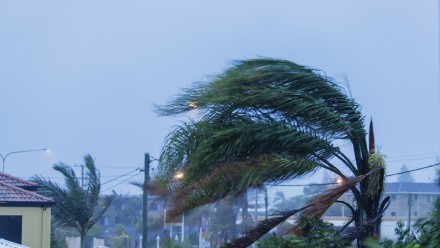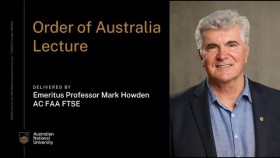2022 in Review: Strengthening Ambition and Action
For many Australians, 2022 will be remembered by the heavy rains and storms that battered the east coast, resulting in some of the most severe flooding the country has ever seen. It’s a story shared around the world in places like Pakistan, where more than 1,500 people lost their lives and millions more were displaced after catastrophic flooding left a third of the country underwater. As each year passes, extreme weather events and the ensuing damage and disruption long-predicted by scientists comes to fruition, more frequently and severely, as the impacts of climate change set in.
At the May federal elections, Australians sent a clear message – delay on climate action will no longer be tolerated. Since then, we are witnessing strengthened ambition in Australia’s climate and energy policy, and associated policies such as biodiversity conservation. National emissions targets have increased and our path to the global goal of net-zero emissions has been reset. On-going challenges have, and will continue to emerge as this change gains momentum. Soaring electricity and gas prices are one notable example, highlighting the inherent volatility of a system reliant on fossil fuels. The need for transformative solutions to these challenges has never been greater.
Now in its second year, The Australian National University (ANU) Institute for Climate, Energy & Disaster Solutions (ICEDS) continues to strengthen the University’s capacity and capability in climate, energy and disaster research, teaching, outreach and engagement. Collaboration across our growing member base, facilitated through channels such as ICEDS research clusters and seed funding grants, drives the University’s unique transdisciplinary approach to tackling these complex and interwoven issues.
Throughout the year, ICEDS has continued to initiate, support and highlight the vital work of ANU researchers who are driving innovative solutions to these challenges. Examples of 2022 projects include the People’s Catchment project, where a team of ANU researchers are partnering with flood-affected communities in the NSW Northern Rivers region to build flood resilience; research into the feasibility of electric vehicle usage in remote regions of Australia; and research that is identifying methods to stop cities and companies causing planetary harm.
Demand for ICEDS professional education offerings has grown exponentially over the year. Our executive education team delivered short courses to over 400 professionals from Australia and around the world, including parliamentarians, executives, technicians, analysts, journalists and community members, building their knowledge and capacity to deal with climate, energy and disaster issues.
Our event program continues to provide important opportunities for a broad range of audiences to engage with experts in discussion on matters of regional and global significance. In 2022, we were delighted to host the first annual ANU Disaster Solutions Update event, where experts from around the world explored opportunities to advance approaches to prevent and respond to disasters.
ANU researchers continued to engage extensively with media throughout the year, reaching global audiences of up to 221 million on a wide range of climate, energy and disaster-related matters. They have also continued to provide numerous formal and informal briefings to policymakers, industry and communities in Australia and across the Asia-Pacific region.
In 2022 the ANU Below Zero Initiative progressed work towards the University’s greenhouse gas emission reduction target of below zero emissions by 2030. Key areas addressed in the year included replacement of gas heaters with heat pumps, starting the process of turning the Kioloa campus into a key part of the local renewable grid, strategic planning for emissions removal projects and community engagement and education.
We are proud to share with you just a small selection of the world-leading work being undertaken by ANU researchers. On behalf of the Institute, we would like to thank you for your support over the past 12 months and encourage your continued engagement with the University on this vital work.
Professor Mark Howden, Director & Head of Climate Change
Professor Frank Jotzo, Head of Energy, and
Dr Roslyn Prinsley, Head of Disaster Solutions
ANU Institute for Climate, Energy and Disaster Solutions (ICEDS)
Read more ANU Climate, Energy & Disaster Solutions Highlights 2022 on the ICEDS website
Download the full report as a PDF











